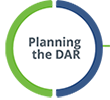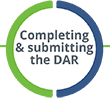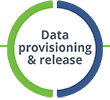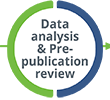In order to access provincial data on the residents of British Columbia and/or federal data on Canadian citizens, academic Researchers must complete and submit a Data Access Request. Population Data BC (PopData) is here to guide you through the application process and help you to plan, complete and submit your DAR.
What is a Data Access Request (DAR)?
A Data Access Request (DAR) is a formal document requesting access to data from the Data Steward(s) responsible for that data set.
Access to data for research purposes is permitted under the BC Freedom of Information and Protection of Privacy Act (FIPPA) or the BC Statistics Act which allow the disclosure of personal information only if certain conditions are met. Each DAR is assessed on its own merits against standard criteria and approved, or not, by the Data Steward(s) responsible for the data. PopData is not involved in this adjudication process.
Submitting a DAR is similar to completing a major grant funding application — it takes time, planning, and meticulous attention to detail. A major obstacle to timely access to data is an inadequate, or incomplete, application. A properly completed DAR will outline research objectives, methodology, and specify, in detail, the data needed for the research project, including a study population definition and a complete list of data files, fields and years of data required.
The Data Access Request process
Click on the stage numbers below for details on what happens during each phase of the process.
Stage 1 | Stage 2 | Stage 3 | Stage 4 | Stage 5 | Stage 6 | Stage 7 |
|
|
Going through the application process Researchers will be required to:
- Become familiar with all material outlining access requirements, data sets, study population definitions, and privacy considerations.
- Ensure that the BC Ministry of Health (MoH) consent form requirements have been met (if applicable).
- Ensure that the ethics and peer review requirements of the Data Steward(s) have been met.







 PopData is sharing this announcement on behalf of the BC Ministry of Health
PopData is sharing this announcement on behalf of the BC Ministry of Health
